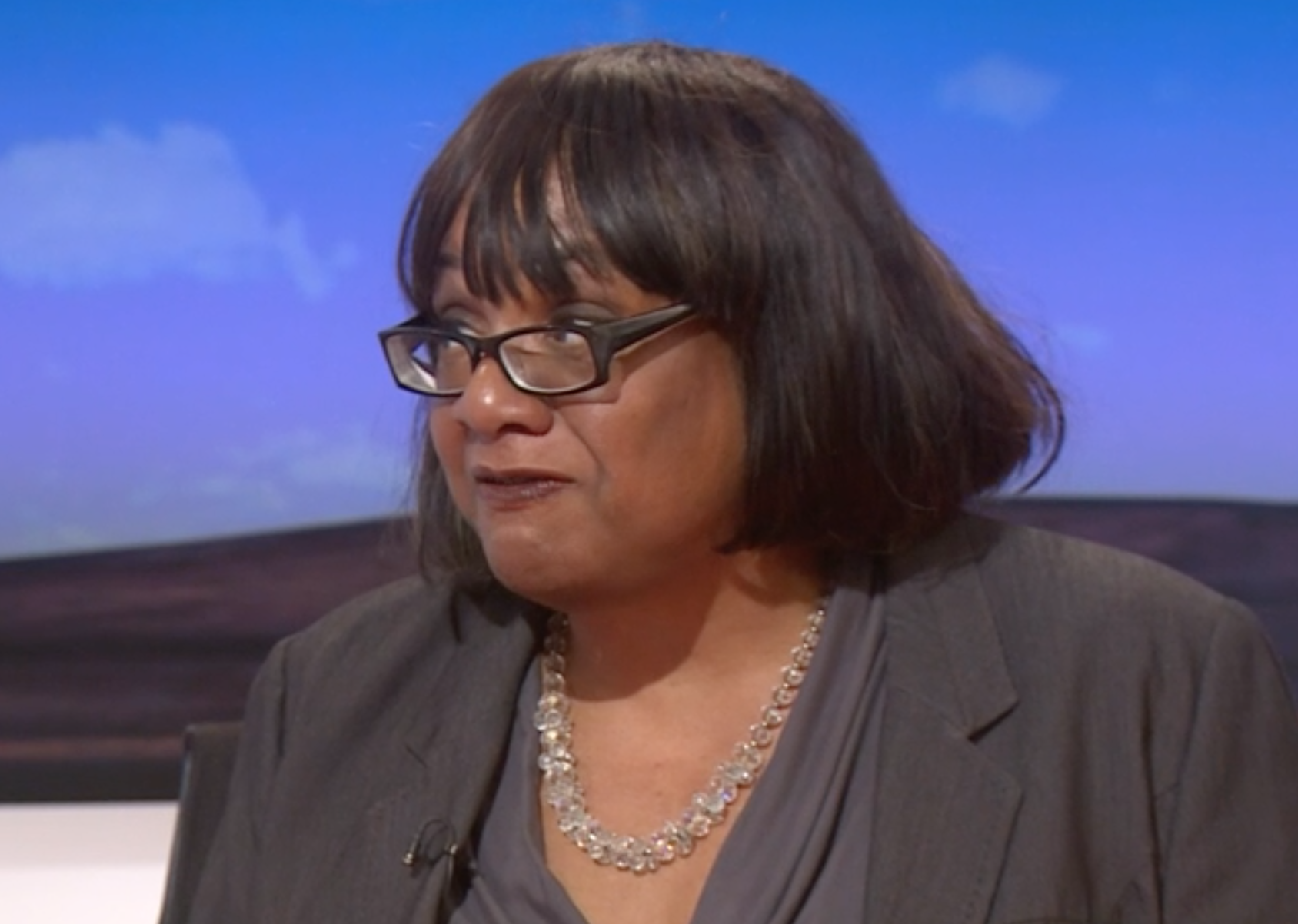Sketch: The ups and downs of Diane Abbott's Police Officer Live Salary Tracker
In three minutes and forty eight seconds, the shadow Home Secretary tripled the size of the police force and offered new recruits a 99,300 per cent pay rise

Your support helps us to tell the story
From reproductive rights to climate change to Big Tech, The Independent is on the ground when the story is developing. Whether it's investigating the financials of Elon Musk's pro-Trump PAC or producing our latest documentary, 'The A Word', which shines a light on the American women fighting for reproductive rights, we know how important it is to parse out the facts from the messaging.
At such a critical moment in US history, we need reporters on the ground. Your donation allows us to keep sending journalists to speak to both sides of the story.
The Independent is trusted by Americans across the entire political spectrum. And unlike many other quality news outlets, we choose not to lock Americans out of our reporting and analysis with paywalls. We believe quality journalism should be available to everyone, paid for by those who can afford it.
Your support makes all the difference.From a political lols-generation perspective, the raw material of Diane Abbott’s interview on LBC on Tuesday morning is too blisteringly hilarious to be improved upon by even the most committed mickey-taker, so it falls to me merely to provide a Diane Abbot's Police Officer Live Salary Tracker.
The shadow Home Secretary has been on the sharp end of some pretty nasty criticism since she told LBC’s Nick Ferrari that Labour’s flagship policy pledge to create 10,000 new police officers, “will, we believe, cost around £300,000”.
Much of this criticism has been based on the fact that, even without accounting for all the extra handcuffs, notebooks and so on, it would require these 10,000 new police officers to work on a base salary of £30 a year.
People will laugh at this. And indeed they have, but in Ms Abbott’s defence it was a mere 20 seconds and two agonisingly super-extended pauses before these 10,000 officers had been given a 26,660 per cent pay rise.
“It will cost... it will cost... £80m,” she now informed, leaving Labour’s 10,000 brand new glorious boys and girls in blue on a frankly generous £8,000 per annum (again, handcuffs etc notwithstanding).
But it wasn’t to last. In her next breath, the shadow Home Secretary laid down a 150 per cent increase in the number of new officers to be created. “We’re looking at recruiting 25,000 police officers over four years,” she said, and with £80m still representing the most recent figure on the table (though that would quickly change), you’re suddenly down to a frankly unmanageable annual salary of £3,200.
This figure, we learned, was “based on average police wages generally” and yes, “of course it has been thought through” but it was at this point that the Labour shadow Home Secretary tripled the size of the police force and at least from a take home pay perspective things started to look bleak again.
“The addition cost in year one where we anticipate 250,000 policemen will be £64.3m,” she said, suddenly slashing wages to a maximum of £257.20. This is admittedly, still 900 per cent up on the £30 a year offer of two minutes twenty seconds before, but with overall police numbers across the nation now swelled from the current 130,000 to fully 380,000, it is not unfair to assume a large percentage of these funds will be absorbed by infrastructure investment: police stations, cars, that sort of thing.
But this did not last long. Twenty seconds maybe (although long enough for her interlocutor Nick Ferrari to be accused of bringing up the 250,000 number, which he hadn’t).
In a flash 247,750 of these new police jobs had been destroyed, with Ms Abbott now looking at recruiting “2,000 to 2,250” new police officers in year one, with “£64.3m” available for it, rising to “298m by year five”, which leaves – and relax – a far healthier £29,800 per officer, and a not unimpressive 99,300 per cent pay increase in just over 3 minutes and 30 seconds.
The fact that this money, which is to come from reversing cuts to capital gains tax, has already been spent on reversing cuts to education, social care and the arts is a problem for another day. And there’s 36 of them to go.
Join our commenting forum
Join thought-provoking conversations, follow other Independent readers and see their replies
Comments